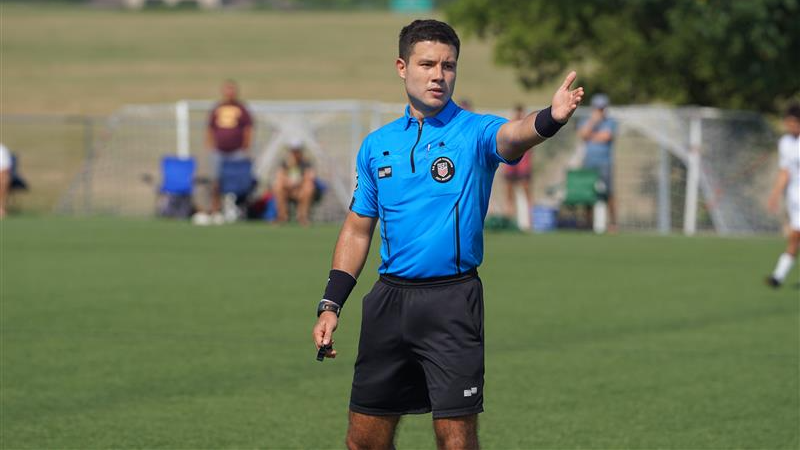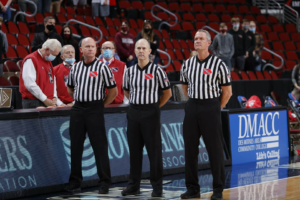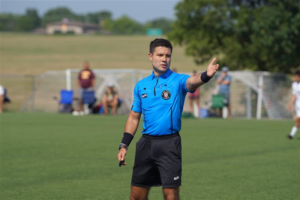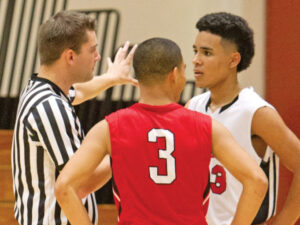
Finding a part-time job that fits around school, sports, and a busy social life can feel impossible for teens and college students. But one opportunity consistently checks every box: becoming a sports official. Whether it’s umpiring baseball and softball, refereeing soccer, basketball, lacrosse, or working youth recreational leagues, officiating offers flexibility, strong earnings, and meaningful real-world experience that few student jobs can match.
In a world where young people are searching for work that pays well, builds confidence, and works around their schedule, officiating stands out as one of the best gigs available.
Flexible Scheduling That Fits Student Life
Teenagers and college students rarely have open schedules. They balance school, homework, extracurriculars, studying, and family commitments. Unlike retail or food service jobs—which often require nights, weekends, and fixed shifts—officiating offers complete flexibility.
Most youth leagues run evenings and weekends, and officials are able to set their own availability in advance. That means students can choose when they’re free to work without sacrificing academic priorities. Instead of being locked into a shift until midnight, students can work one game, two games, or a full slate depending on what works for them.
For those who want to stay active, earn money, and maintain control over their time, officiating is unmatched.
Strong Earnings Compared to Other Youth Jobs
One of the biggest advantages of becoming a referee or umpire is the pay. Students can often earn far more per hour officiating than they would at typical part-time jobs.
Many youth sports pay $25 to $60+ per game, depending on the sport and level. A student working a few games on a Saturday morning can earn the same—or more—than an entire week at a fast-food job. Some high school officials, depending on the state, can earn even higher rates.
This makes officiating a reliable income source for teens saving for college, covering gas and transportation, or simply wanting spending money without sacrificing their entire weekend to a rigid hourly job.
Builds Confidence, Leadership, and Decision-Making Skills
Officiating requires students to make quick decisions, manage emotions, and stay composed under pressure. These are essential life skills that help young people become more confident and resilient.
As a sports official, teens and college students learn to:
- Communicate clearly
- Handle conflict calmly
- Stand by their decisions
- Project confidence
- Work with coaches, players, and partners
- Manage responsibility independently
These are the types of qualities employers and colleges look for—skills that develop faster on a field or court than behind a cash register.
Officiating is essentially paid leadership training.
Stay Active and Connected to Sports
Many students grow up playing sports but eventually age out, switch priorities, or no longer have time to commit to a team. Officiating offers a perfect way to stay involved without the demands of daily practices.
Officials stay moving, stay sharp, and stay connected to the game they love. It’s also a great way to deepen understanding of strategy and rules. For students who love sports—whether they played competitively or recreationally—officiating keeps them part of the action.
A Pathway to Long-Term Opportunities
What starts as a weekend job can grow into something even greater. Many high-level referees and umpires began working small youth games as teenagers. From there, they progressed into high school, travel, collegiate, and even professional officiating.
Even for students who don’t see officiating as a long-term career, the relationships built with coaches, athletic directors, league officials, and other referees can open doors to future opportunities such as:
- Coaching
- Sports administration
- Facility management
- Athletic event staffing
- Camps and clinics
- Youth program leadership
Sports roles often reward passion and reliability—two traits officiating naturally develops.
An Opportunity to Make a Positive Impact
Referees and umpires play a critical role in youth sports. Without officials, games don’t happen. Students who take on the role of an official help create fair, safe, and enjoyable experiences for kids and families.
Teens and young adults often find meaning in knowing they contribute to their community. By officiating, they become leaders younger athletes look up to.
It’s more than blowing a whistle—it’s shaping the youth sports experience.
Conclusion
Becoming a sports official is one of the most rewarding and practical jobs available for teens and college students. It offers flexible scheduling, strong pay, leadership development, and a chance to stay active and connected to sports. More importantly, it builds confidence, responsibility, and communication skills that last far beyond the field.
For young people looking for a job that fits their life—not the other way around—officiating is a smart move with benefits that go well beyond the paycheck.












